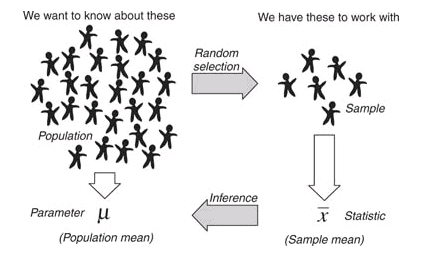Online Statistics Tutor: Introduction to Hypothesis Testing - Understanding and Interpreting Statistical Hypothesis Tests

Regardless of the statistical test that you are using, the process of rejecting or retaining a null hypothesis can be confusing for many. I'm not going to target any one hypothesis test, rather discuss the general logic. My intention with this post is to provide students of introductory statistics courses (or anyone attempting to learn these concepts) some additional insight into how to understand and interpret hypothesis tests. Whether you are conducting a t-test, F-test, chi-square, or are testing regression coefficients from a model, the general idea behind it all is the same. All statistical hypothesis tests follow the same general approach of testing the scenario of the null hypothesis. That is, there is no association or detectable effect with your outcome variable, also known as the dependent variable. The alternative hypothesis is usually the research hypothesis, e.g. soda affects obesity, or excessive exposure to business meetings is associated with reduced brain funct...
